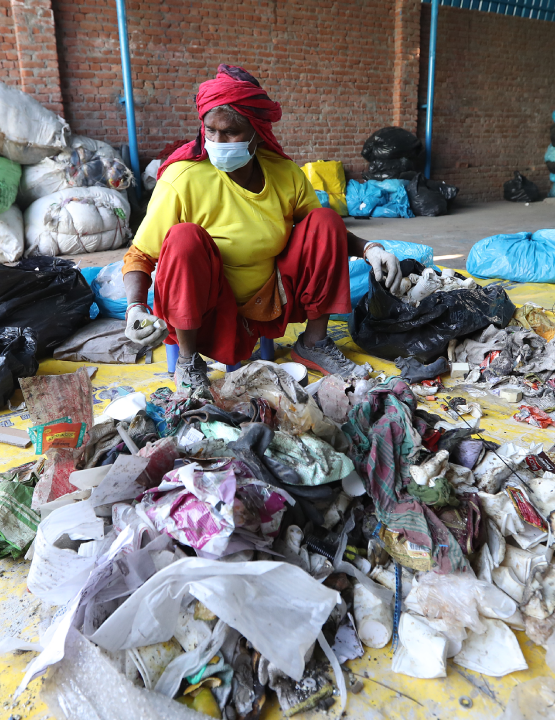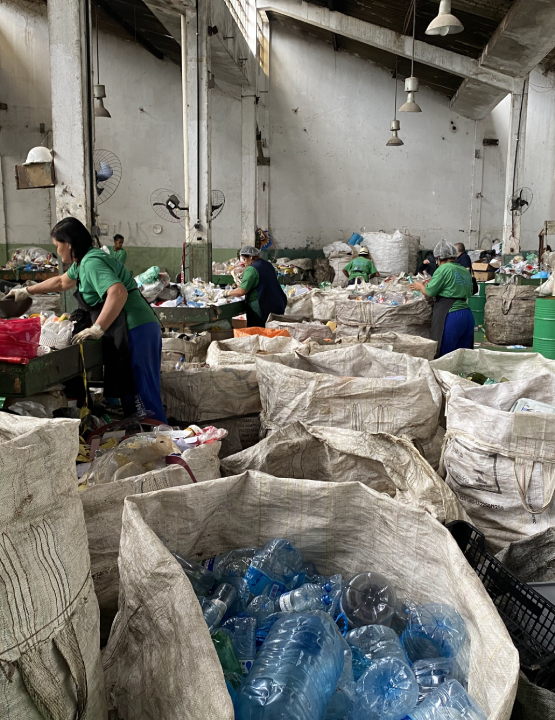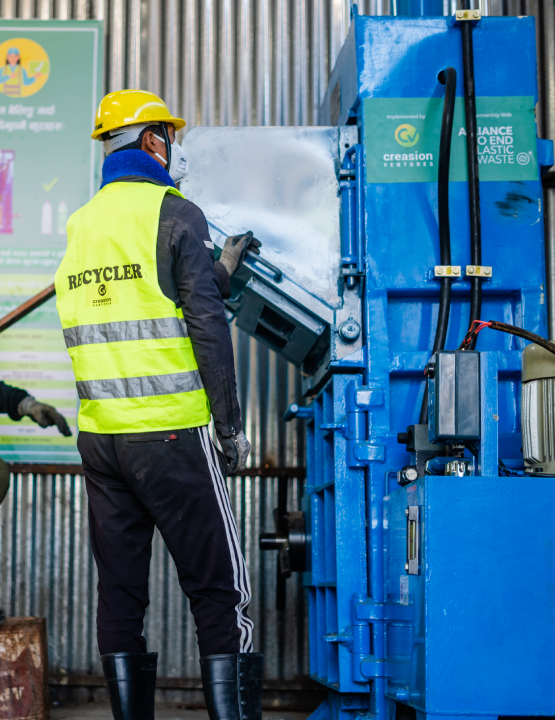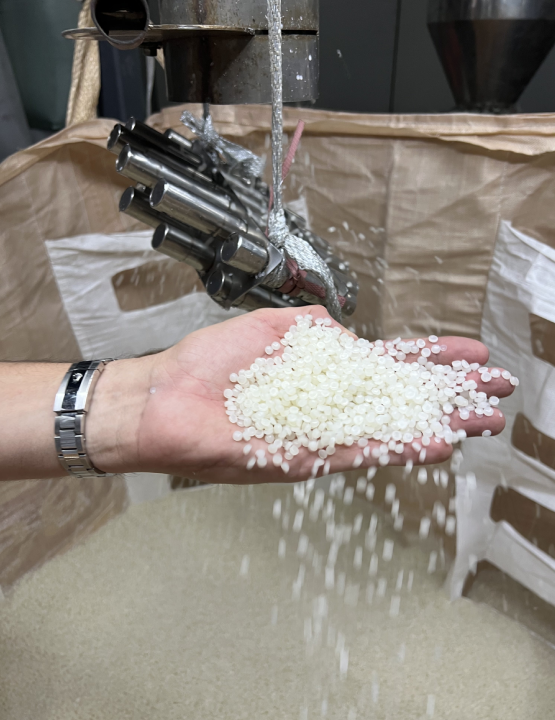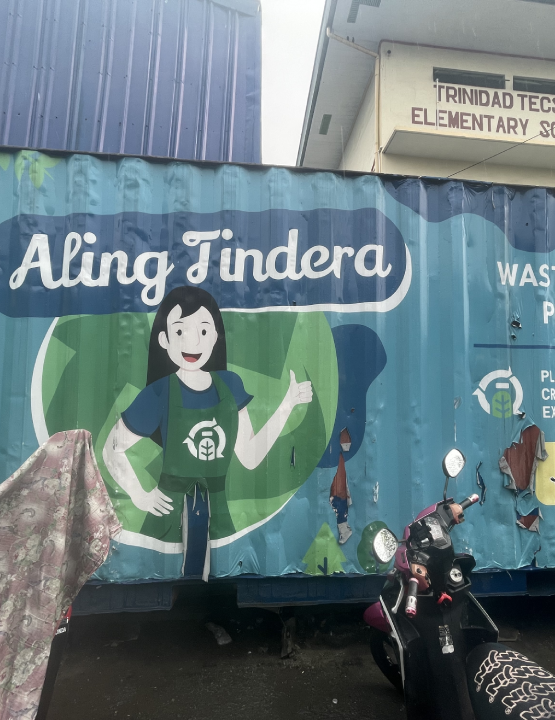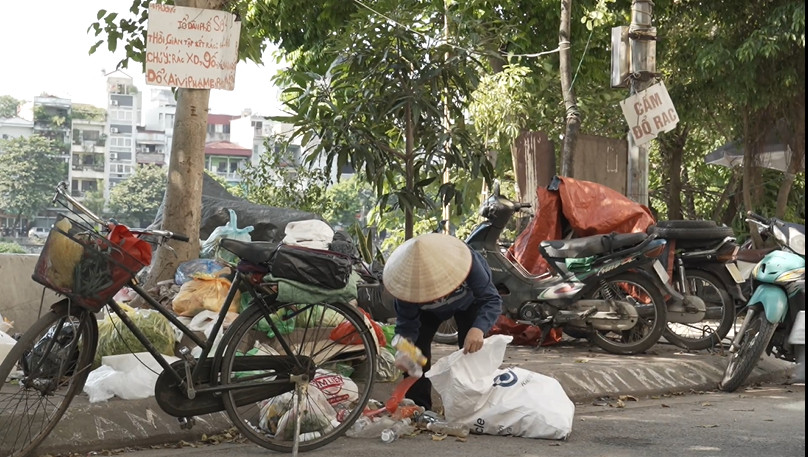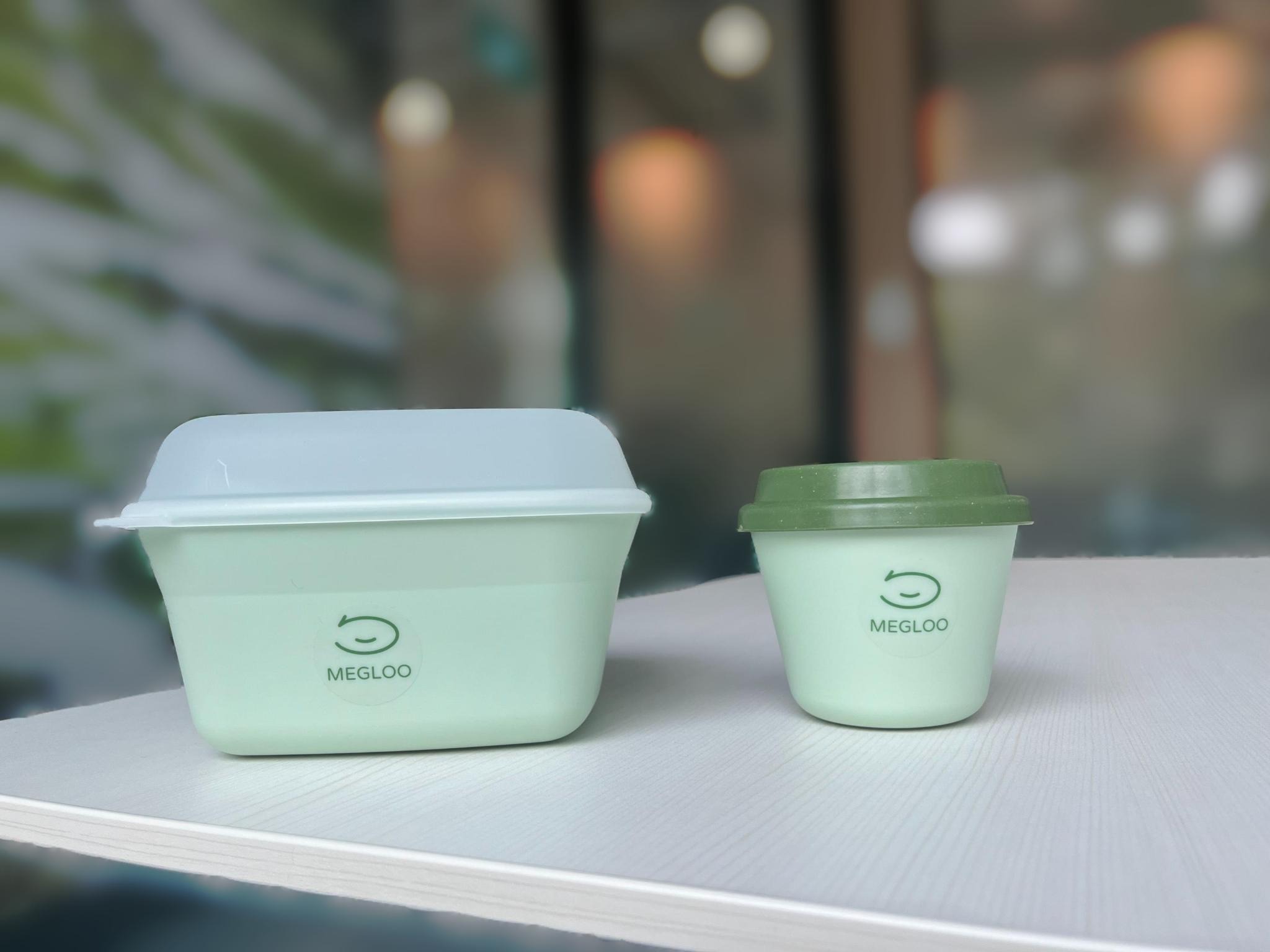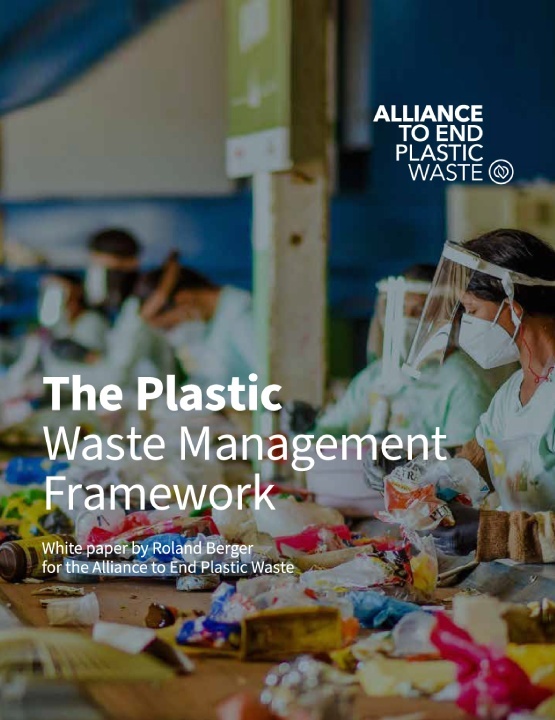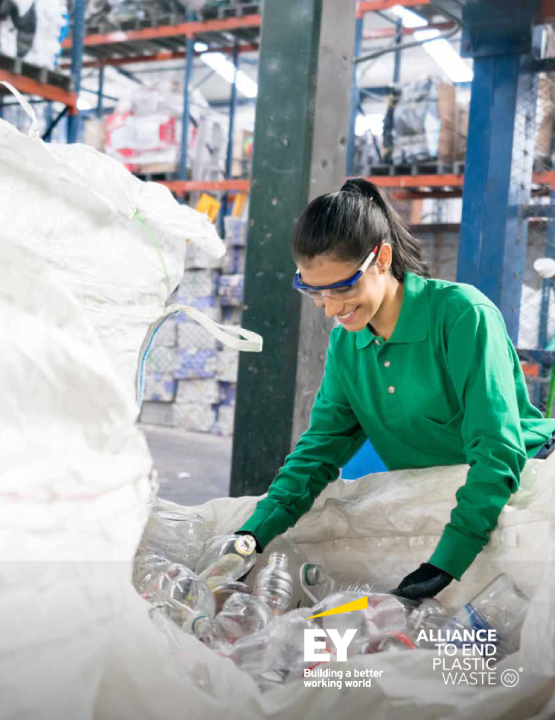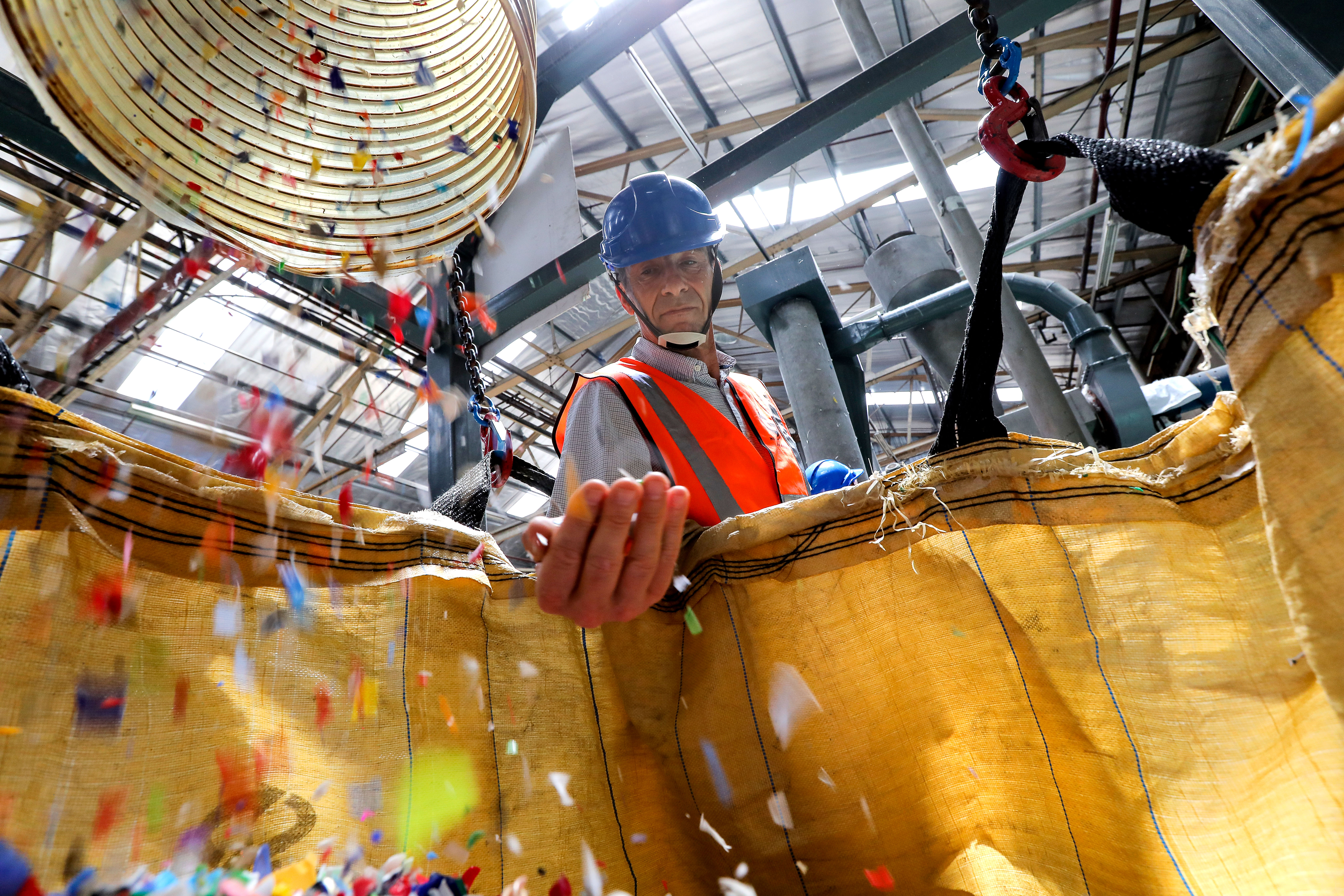Tons of hard-to-recycle plastic are disposed of in the gigantic municipal landfill of Dandora in Nairobi, Kenya. Our work with Taka Taka Solutions allows for upscaled handling of such unmanaged landfills.
Nairobi, Kenya
Flexible Plastic Waste Recycling in Kenya
Following a successful six-month collaboration in 2022, Taka Taka and the Alliance are now embarking on a more ambitious undertaking: to put into place a sustainable recycling solution for flexible plastics. In salvaging flexible plastic waste and returning it to the production cycle, the material can be diverted away from the Dandora landfill – one of Africa’s largest dumpsites.
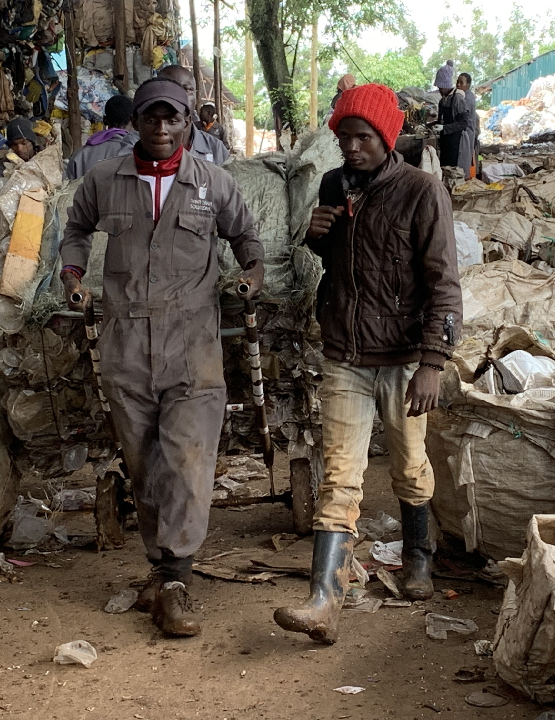
Protective clothing and boots create safer working conditions for informal waste pickers.
Protective clothing and boots create safer working conditions for informal waste pickers.
Overview
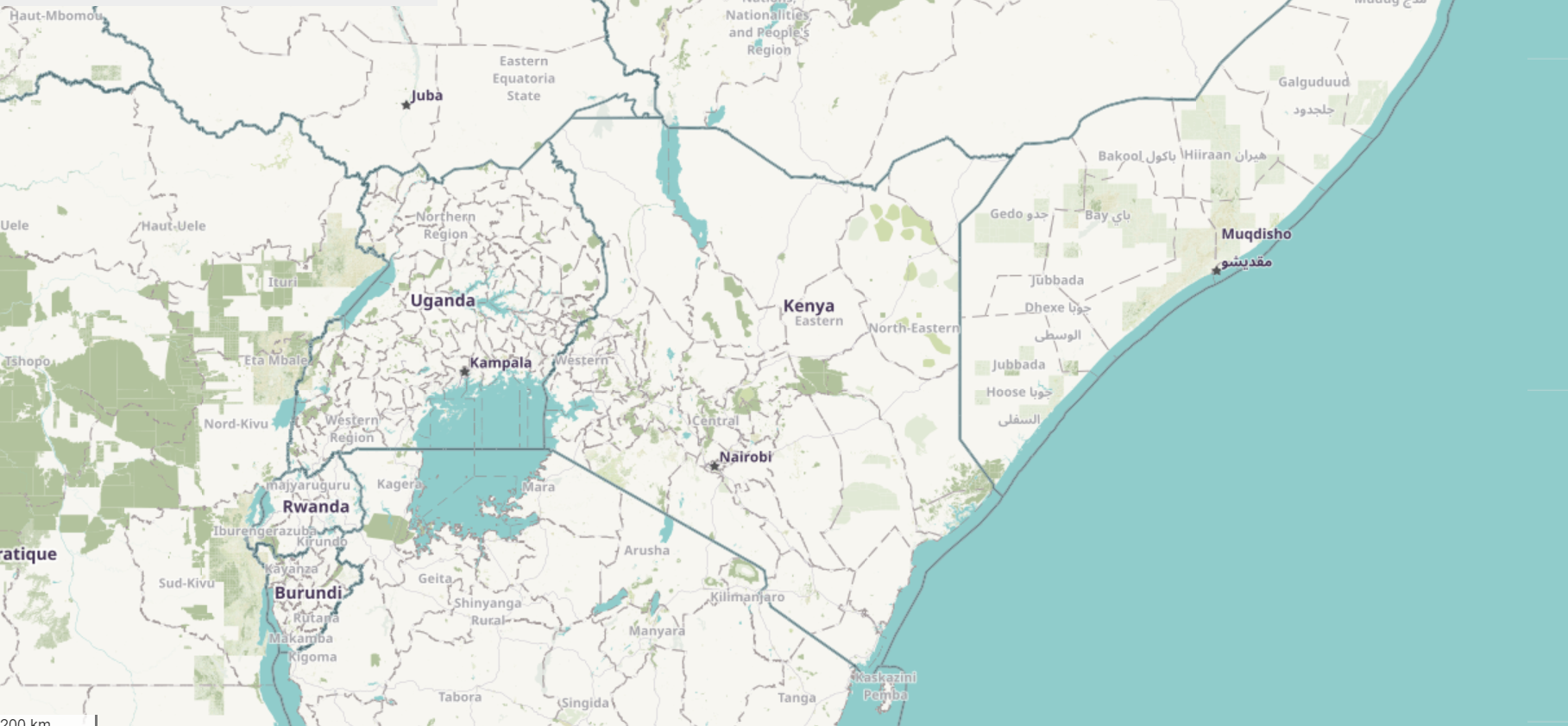
Location
Nairobi, Kenya
Partner
Taka Taka Solutions
Achieved
500 informal workers provided with improved working conditions, >1,000 tonnes of plastic waste diverted, 140,000 people have access to new or improved waste management services
Tackling Dandora's Waste Mountain
Near Nairobi’s Dandora landfill, work has begun on a processing plant that will give new life to hard-to-recycle flexible plastics.
Following a successful six-month collaboration in 2022, Taka Taka and the Alliance are now embarking on a more ambitious undertaking: to put into place a sustainable recycling solution for flexible plastics, which until now, have been left to languish in the landfill.
Sprawling 300,000 square metres just outside the capital, Dandora is one of Africa’s largest dumpsites. Despite having reached maximum capacity more than two decades ago, it continues to receive more than 2,000 tonnes of unsorted waste each day, including the equivalent of 30 truckloads of flexible plastic waste.
These are ignored by waste pickers – made up of people from the lowest rungs of the socioeconomic ladder – who dig through heaps of household and commercial waste, in search of items that they can sell at a good price.
With the expanded capacity its new plant will bring, Taka Taka hopes to improve the safety and increase the income of Nairobi’s poorest, while salvaging flexible plastic waste and returning it to the production cycle.
In 2022, the Alliance supported Taka Taka with the operation of buy-back and sorting centres, bringing together informal workers from the surrounding area to source flexible plastic waste. 140,000 people received access to new or improved waste management as a result, while 500 informal workers were trained to identify and sort plastic waste. Mindful of the difficult conditions that waste pickers at Dandora face, these workers were given protective clothing and boots, as well as regular health check-ups.
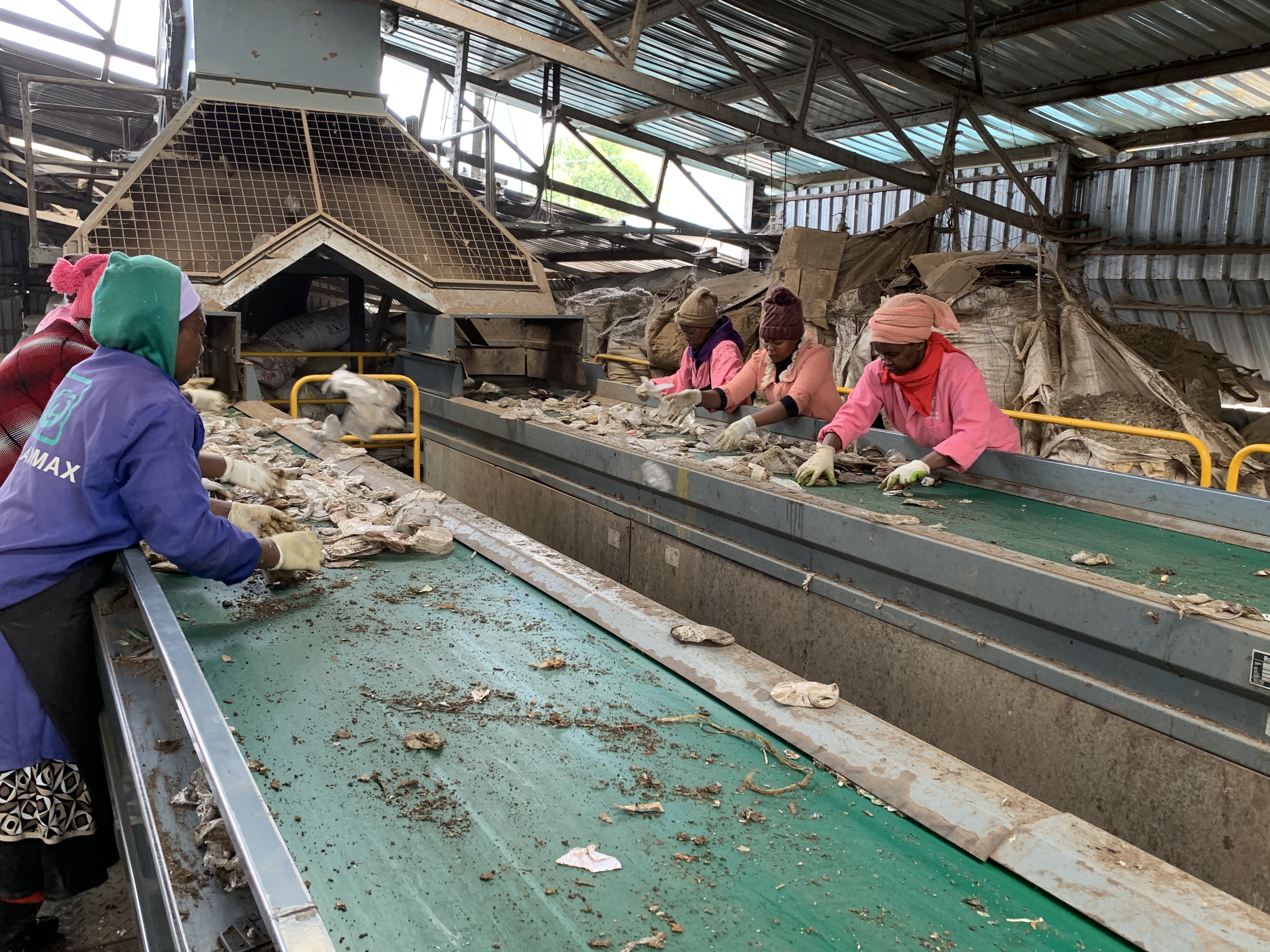
Fair prices for recyclables, meanwhile, worked as an incentive to collect such materials while improving worker incomes.
Within six months, Taka Taka had met its target of recovering 1,000 tonnes of flexible waste from the landfill. The plastic waste was baled for transport to Taka Taka’s facility to be washed, processed into pellets, and reintroduced into the local plastic production system as an alternative to virgin plastic feedstock.
The current five-year partnership between Taka Taka and the Alliance, under which a new facility is being constructed next to their existing site, builds on the collaboration’s initial success. Outfitted with state-of-the-art processing equipment funded by the Alliance, the new plant will begin production in the fourth quarter of 2023 with the capacity to process up to 16,000 tonnes of flexible plastic waste annually. Given the larger scale of the project, more than 200 will be employed to support the new plant.
This project expands on Taka Taka’s existing operations in Nairobi. For more than a decade, the company, which takes its name from the Swahili word for “rubbish”, has been collecting, sorting, and processing multiple waste streams in Nairobi. Its fleet of bright orange trucks are a familiar sight in one of the world’s most polluted cities. Where mounting waste volumes pose a growing risk to both people and the environment, Taka Taka has been able to recycle or compost close to 95% of the waste it collects.
By turning its sights to processing and returning flexible plastic waste into the production system, it is now helping to bring the city a step closer to circularity.
